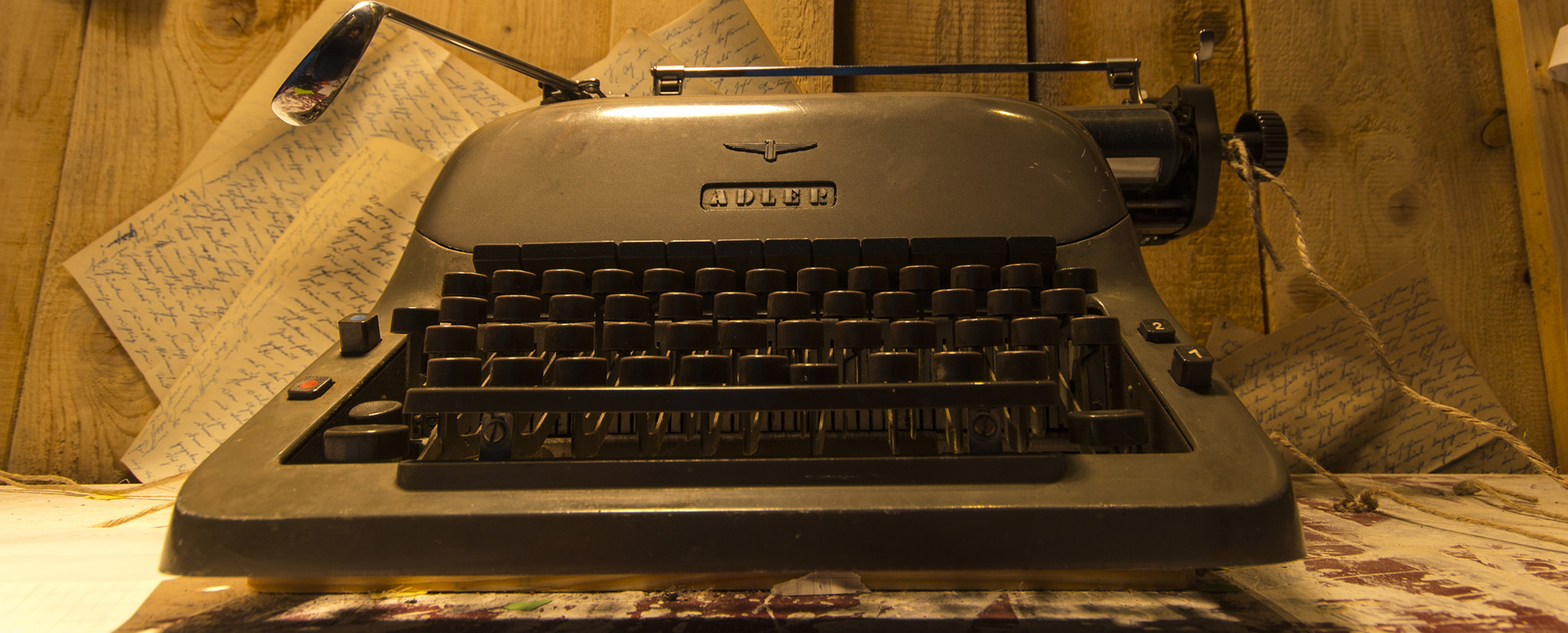
(Photography by helmi099 [CC BY-SA 2.0])
The Graham School’s Writer’s Studio provides a home for budding authors.
“I really would like to venture out to this thing called ‘writing,’” one of the students admits. The handful of others attending the seminar nod—some are newbies, and others have finished novels, but all enrolled in the Writer’s Studio for that very reason: venturing out and improving their skills.
The Writer’s Studio is an open enrollment program run through the Graham School of Continuing Liberal and Professional Studies. Dozens of classes are offered throughout the year for Chicago writers, young and old, experienced and novice.
Writer’s Studio director Gina DiPonio, AM’01, has developed new courses continually since assuming the position a year and a half ago. “I am thinking about what doesn’t already exist that would be exciting, and that would serve the writing of students, and that instructors would be excited about teaching,” she says.
The classes cover a wide range of genres and skill sets, from Basic Creative Writing to Publishing Your Book for Children or Young Adults. Although none of the classes have formal prerequisites, many writers choose to take them in sequence, staying with the same tight-knit group of classmates.
A few of the women attending a class this July called Writing Killer Scenes are old friends. As they pull out laptops and pads of paper, they chat idly about the changes they’ve made to their stories since their previous class with today’s instructor Susan Hubbard, cowriter of the feature film Realization (2006).
As they wait for everyone to arrive, the students write name tags on thick folded cardstock. Hubbard bustles about the room, setting up the projector and scrawling tips for upping the ante in a scene on a large pad of paper in the corner of the room. She’s a writer who looks the part, with a bright orange dress, a cloud of fly-away black hair, and large tortoiseshell glasses.
The half dozen students, meanwhile, are as diverse as their writing. Karen, an elementary school teacher and middle-grade author, and Nancy, a retired fashion designer turned writer working on a romantic comedy, joke with Hubbard about their previous seminar, which Hubbard describes as “really off the charts.”
Other students are newcomers to the craft. Michael, an accountant, is looking to escape from the “rigid” world of thesis writing he found while getting his master’s. He admits that, as a novice fiction writer, he struggles to find original ideas.
“The best ideas to write about have already been written,” he laments. The class, still midway through introductions, begins a lively discussion over this concept. Was anything truly original? Is there harm in having other authors influence your work?
After a few minutes, Hubbard cuts in, describing writing as a “process of discovery for ourselves. … We are saying something we believe to be true about the world.” Each person’s unique perspective, she says, is inherently original.
The class continues with this same vigor. Hubbard shows scenes from movies like When Harry Met Sally (1989) and Eye in the Sky (2015), and asks students to analyze which narrative choices created emotional impact. After some discussion, she asks students how they might apply the same concepts to the scenes in their novels or screenplays.
Hubbard encourages the writers to spend the last few minutes working on their scenes, incorporating the major lessons of the day. The class sits silently, the gentle scratch of pen on paper and fingers on keys filling the air. Students pause frequently to think, sporting identical middle-distance stares. Hubbard breaks in and asks writers to consider the setting of the scene—is it appropriate? Which characters are listening?
After another few minutes of free writing, the class ends. Many students linger, looking to get in one last question or talk about their work with a classmate. Most of them are waiting for another Writer’s Studio offering, an event called The Business of Writing.
The Business of Writing features three panel discussions with published authors about how they work and their path to publication. The presenters universally preach caution and patience, and speak openly about the reality of living off of fiction writing (the consensus: you can’t).
Regardless, attendees hang on each word, following up with a flurry of questions and even challenges. One man in the back of the room calls toward the panelists, “I am emboldened by stories of failure,” and asks them to share a story of when things went wrong. The crowd laughs as Cyn Vargus, author of short story collection On The Way, begins an anecdote about the time an agent compared her work to “watching water boil.”
For DiPonio, this direct interaction between writers, both in the classroom and at larger events, is the heart of the Writer’s Studio program. “I think the student experience has been really strong over the last year or more, and I want ... to reap the benefits of the community of being a consistent source of inspiration and writing community for a big and growing group of people.”
